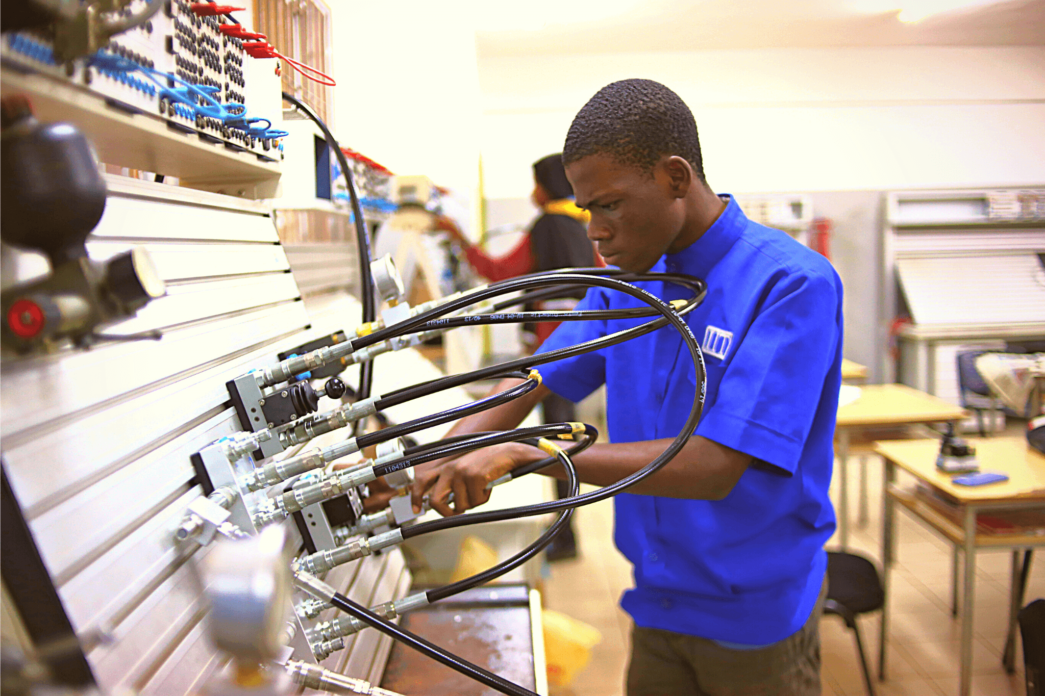File photo of engineering students at a workshop | Credits: IIT
Australia will face a shortfall of 250,000 skilled workers in finance, technology, and business (FTB) sectors by 2030, according to a new report.
The report released by Future Skills Organisation (FSO), a jobs and skills council funded by the Australian Department of Employment and Workplace Relations, said the demand for FTB skilled professionals is expected to grow much faster than the overall workforce, while supply is not keeping pace.
The organisation said by 2030, Australia is expected to need 3.5 million FTB roles, nearly 450,000 more than today.
The job demand across the sectors is projected to reach 131,000 in technology, followed by 64,000 in finance and 48,000 in business.
Advertisement
“Education and training pipelines are not generating sufficient graduates to meet emerging demand,” the report reads.
“At the higher education level, Information Technology (IT) bachelor’s degree commencements rose between 2021 and 2023, yet these degrees still post the sector’s highest attrition rate and, with international students making up 59% of the 2023 intake, domestic supply remains constrained.
“Domestic enrolments in management and commerce bachelor degrees are declining, especially in accounting, with international students comprising 49% of the 2023 intake.
Advertisement
“Vocational Education and Training (VET) completions have rebounded since the pandemic, but are still volatile and remain insufficient to ensure a stable pipeline of skilled workers.
“Taken together with the higher education trends above, the evidence shows that neither higher education nor VET is yet delivering the consistent supply needed to meet future FTB demand.
“With demand outstripping supply by 2030, a system-wide effort, spanning Vocational Education and Training (VET), higher education, migration and industry collaboration, is essential to skill, upskill, attract and retain the workforce required by 2030.”
LEVERAGING MIGRATION PATHWAYS
Advertisement
The report said while migration alone cannot fill the gap in the finance sector, Australia can facilitate the transition from student visas to permanent residency for finance graduates, especially in accounting, where 16% of professionals begin on student visas, noting that the international talent pipeline is critical while domestic supply scales up.
To address the projected shortfall in the tech sector, the organisation recommended that the government strengthen migration pathways by maintaining and enhancing existing channels.
It said this would help stabilise workforce supply while domestic talent pipelines continue to develop as part of efforts to bridge the skills gap.
“Migrants already hold 41% of tech roles, and temporary-to-permanent migration routes have been critical in meeting demand,” the report said.
Advertisement
The organisation also recommended that the country should use temporary-to-permanent migration channels to fill mid-senior business roles while domestic supply builds, prioritising occupations with the largest projected deficits.
In 2024, the Jobs and Skills Australia (JSA) outlined 456 occupations on the consolidated skilled occupations list (CSOL).
Advertisement
The CSOL forms the basis for the core skills stream under the skills in demand (SID) visa programme, allowing employers to sponsor skilled workers for temporary visas, with potential pathways to permanent residency.
The CSOL listed jobs such as ICT business analysts, software engineers, cybersecurity engineers, data scientists, accountants, auditors, solicitors, among others.
Advertisement













